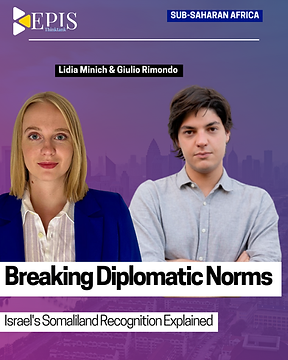top of page

EPIS Geographic Working Groups
Sub-Saharan Africa
Harnessing potential for a prosperous tomorrow
The Working Group Sub-Saharan Africa, analysing political stability, security challenges, and economic development, explores regional conflicts, counterterrorism efforts, and foreign influence in Sub-Saharan Africa. It assesses governance trends, resource security, and military cooperation. Monthly briefings present factual analyses and visualisations to illustrate the region’s evolving role in international security policy.
bottom of page


























